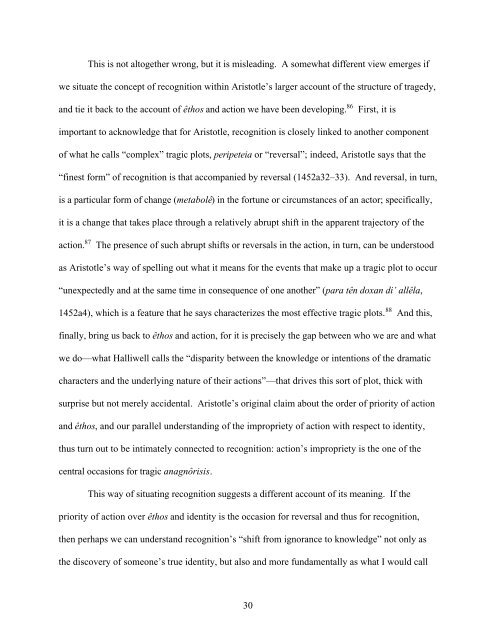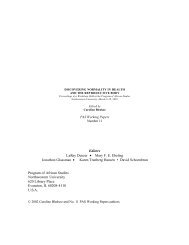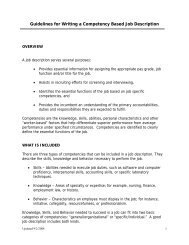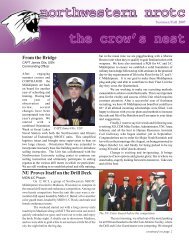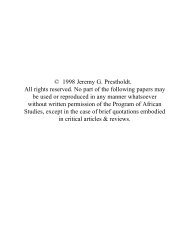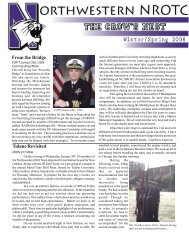TRAGIC RECOGNITION: ACTION AND IDENTITY IN ANTIGONE ...
TRAGIC RECOGNITION: ACTION AND IDENTITY IN ANTIGONE ...
TRAGIC RECOGNITION: ACTION AND IDENTITY IN ANTIGONE ...
You also want an ePaper? Increase the reach of your titles
YUMPU automatically turns print PDFs into web optimized ePapers that Google loves.
This is not altogether wrong, but it is misleading. A somewhat different view emerges if<br />
we situate the concept of recognition within Aristotle’s larger account of the structure of tragedy,<br />
and tie it back to the account of êthos and action we have been developing. 86 First, it is<br />
important to acknowledge that for Aristotle, recognition is closely linked to another component<br />
of what he calls “complex” tragic plots, peripeteia or “reversal”; indeed, Aristotle says that the<br />
“finest form” of recognition is that accompanied by reversal (1452a32–33). And reversal, in turn,<br />
is a particular form of change (metabolê) in the fortune or circumstances of an actor; specifically,<br />
it is a change that takes place through a relatively abrupt shift in the apparent trajectory of the<br />
action. 87 The presence of such abrupt shifts or reversals in the action, in turn, can be understood<br />
as Aristotle’s way of spelling out what it means for the events that make up a tragic plot to occur<br />
“unexpectedly and at the same time in consequence of one another” (para tên doxan di’ allêla,<br />
1452a4), which is a feature that he says characterizes the most effective tragic plots. 88 And this,<br />
finally, bring us back to êthos and action, for it is precisely the gap between who we are and what<br />
we do—what Halliwell calls the “disparity between the knowledge or intentions of the dramatic<br />
characters and the underlying nature of their actions”—that drives this sort of plot, thick with<br />
surprise but not merely accidental. Aristotle’s original claim about the order of priority of action<br />
and êthos, and our parallel understanding of the impropriety of action with respect to identity,<br />
thus turn out to be intimately connected to recognition: action’s impropriety is the one of the<br />
central occasions for tragic anagnôrisis.<br />
This way of situating recognition suggests a different account of its meaning. If the<br />
priority of action over êthos and identity is the occasion for reversal and thus for recognition,<br />
then perhaps we can understand recognition’s “shift from ignorance to knowledge” not only as<br />
the discovery of someone’s true identity, but also and more fundamentally as what I would call<br />
30


